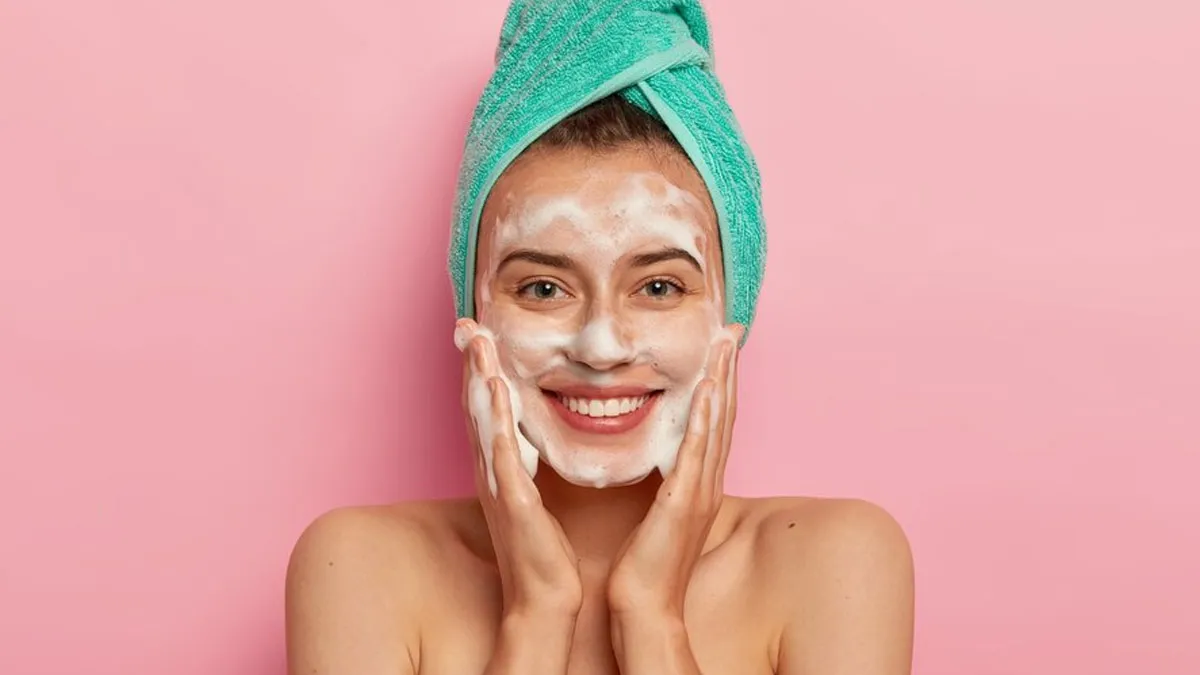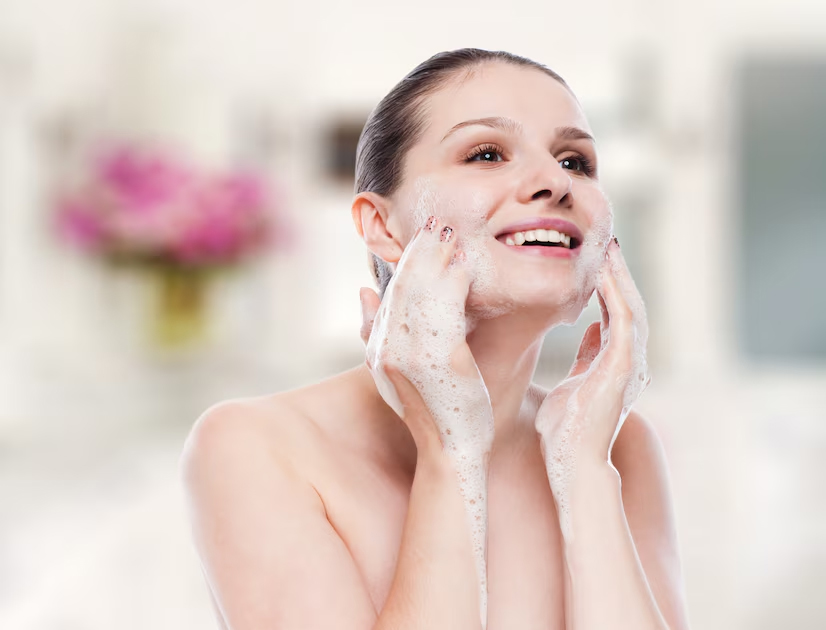
Face washing is the easiest step in any skincare routine and yet it's the one most of us get wrong. The reality is, a bad cleanser can strip your skin, cause breakouts, or leave your face dry and irritated. Conversely, picking the right face wash for your skin type can be the key to clear, balanced, and healthy-looking skin. In an exclusive interaction with the editorial team of Onlymyhealth, Dr Sanjeev Gulati, Department of Dermatology, Sharda Hospital - Noida, helped us in determining our skin type and how to choose (and use correctly) the perfect face wash to ensure your skin remains healthy and fresh.
Table of Content:-
Why the Right Face Wash Makes a Difference
Your face wash is more than just cleansing dirt from your face; it also helps regulate your skin's pH level, moisture barrier, and microbiome. The wrong cleanser can:
- Dry out your skin
- Lead to oil overproduction
- Leading to breakouts or acne
- Trigger sensitivity and redness
That's why it's essential to customise your cleanser to your skin's specific requirements. If you are someone like me who doesn't know their skin type, here’s how you can determine that.
Discovering Your Skin Type
To select the proper face wash, you first need to know your skin's specific requirements. Here's how to discover your skin type correctly:
Oily Skin
If your skin consistently appears oily, particularly on the T-zone (the forehead, nose, and chin), and you regularly get blackheads, whiteheads, or large pores, you most likely have oily skin. This type of skin produces more sebum than needed, and if not taken care of, can cause acne.

Also Read: Foods to Boost Thyroid Function and Combat Fatigue
Dry Skin
Dry skin tends to be tight, rough, or flaky, particularly after washing. You might see dullness or even slight irritation if your skin is not well moisturised. Dry skin contains fewer natural oils and is sensitive and prone to premature fine lines.
Combination Skin
Combination skin has both oily and dry patches. Usually, the T-zone is oily, but the cheeks and jawline tend to be dry or normal. Combination skin needs a balancing approach to prevent worsening of either condition.
Sensitive Skin
If your skin tends to respond with redness, stinging, itching, or burning to products, you likely have sensitive skin. This skin type requires more attention and mild ingredients to avoid flare-ups or irritation.
Normal Skin
Normal skin is in balance, neither too oily nor too dry. It's almost blemish-free, has tiny pores, and a smooth texture overall. Although normal skin is low maintenance, it must be properly washed to keep it healthy and radiant.
Best Face Wash For Each Skin Type
1. For Oily and Acne-Prone Skin
Look for: Gel-based or foaming cleansers containing salicylic acid, tea tree oil, or benzoyl peroxide.
Why: These ingredients unclog pores and regulate excess oil without drying out.
Avoid: Creamy or oil-based cleansers that leave a greasy residue.
2. For Dry Skin
Look For: Cream or milk cleansers with moisturising ingredients such as hyaluronic acid, ceramides, or glycerin.
Why: These keep the moisture in and stop the skin from becoming tight or flaky.
Avoid: Alcohol-based cleansers or soaps.

Also Read: Is Eye Cream Necessary For Skin Protection? Expert Answers It For You
3. For Combination Skin
Look for: Balancing cleansers that are effective but gentle—ideally pH-balanced foams or gels.
Why: You must clean oily areas without drying out the drier regions.
Pro Tip: Multi-cleansing is helpful for some, applying gel to the T-zone and rich to the cheeks.
4. For Sensitive Skin
Look for: Fragrance-free, hypoallergenic cleansers with calming ingredients such as chamomile, aloe vera, or colloidal oatmeal.
Why: To minimise irritation and soothe redness without harshly cleansing.
Avoid: Gritty exfoliating cleansers, sulfates, or very scented products.
5. For Normal Skin
Look for: Light gel or cream cleaners that preserve your skin's equilibrium.
Why: To keep the skin healthy without any dryness or oiliness.
Pro Tip: Choose a cleanser containing antioxidants for the extra protection of your skin.
How To Use Your Face Wash Properly
Even a good product will not work if not used correctly. Here are the dermatologist-approved tips:
- Wash Twice A Day: Morning and evening to take away oil, dirt, and pollutants.
- Use Lukewarm Water: Hot water robs natural oils; cold water doesn't effectively clean.
- Massage Gently: With fingertips (not towel or scrubber) in a circular motion for 30 seconds.
- Rinse Thoroughly: Residue can irritate or cause breakouts.
- Pat Dry: Use a soft, clean towel and don't rub your face.
- Follow Up: Moisturise right away to seal in moisture.
Common Mistakes To Avoid With Face Wash
- Overwashing: This can weaken your skin barrier and lead to breakouts.
- Using Body Soap on Face: Body soaps are too harsh for sensitive facial skin.
- Skipping Cleansing After Sunscreen Use: Always thoroughly remove sunscreen and makeup at night.
Bottomline
The foundation for radiant, healthy skin begins with the proper face wash. By knowing your skin type and applying the proper cleanser, you not only safeguard your skin's health but you also prime the rest of your skincare routine. Remember that our skin needs to shift with seasons, hormones, and lifestyle, so re-evaluate your cleanser frequently for optimal results and always consult a professional before changing your regimen.
Also watch this video
How we keep this article up to date:
We work with experts and keep a close eye on the latest in health and wellness. Whenever there is a new research or helpful information, we update our articles with accurate and useful advice.
Current Version